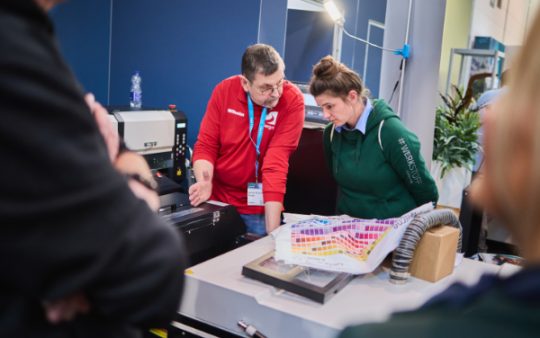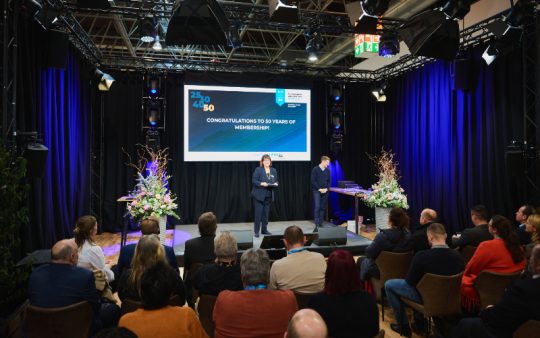Sustainable fashion – an industry undergoing change

Published on 10.03.2020
STAIY is an online platform for sustainable fashion that was launched in Berlin. The mission of the four young Italian entrepreneurs is to minimise the carbon footprint of the fashion industry with their platform and to accelerate transition to a more sustainable fashion industry. For their online ranges they select the fashion brands very carefully subjecting them to a comprehensive scrutinising process. And the yardstick applied to the companies that want to present themselves here, is pretty high.
To be greenlighted for presentation on STAIY interested brands have to answer 62 questions related to the five pillars of sustainability. These include the themes water, air, materials, working conditions and commitment. The questions asked are based on the Global Sustainable Development Goals laid down by the United Nations. On top of this, certificates of the ‘Fair Wear Foundation’ or issued by ‘GOTS – Global Organic Textile Standard’ have to be submitted, which are then verified by the sustainability officers of the platform.
STAIY wants to present users sustainable fashion brands on a contemporary platform. To this end personalised AI-assisted style counselling is offered that turns shopping into an individual customer journey for shoppers.

The ranges are in the medium-priced segment and designed to address mainstream shoppers. “It is anything but easy for consumers to find a place to shop sustainably. This is why they often take the easy way out and buy from the fashion giants that offer a little bit of everything and are easy to find. The sustainable fashion industry can only be effective if it is in a position to win over part of these shoppers,” says co-founder Adrian Leue.
To the founders sustainability is the responsible and ethical basis for their work rather than a trend. But what about the big fashion houses? Consumers’ expectations are rising and so is the pressure on them: whereas sustainable fashion used to be a marginal theme it has moved centrestage for the fashion industry now. Therefore, a change in the behaviour of fashion giants is in the offing. Spanish fashion retailer Zara announced its intention to produce all fashion sustainably by 2025. All viscose, cotton, linen and polyester wovens used to manufacture apparel are to be either organic, sustainable or recycled. Furthermore, environmental resources are to be saved in particular by foregoing plastic bags. Additionally, second-hand garment containers are put up in every outlet with the aim of turning old garments into new ones. With this move Zara also reacts to the new EU Directive on Circular Economy, obliging all member states to collect textiles separately from 2025. By 2025 Zara additionally intends to exclusively use renewable energies.
Swedish fashion giant H&M has also announced ambitious green goals. By 2020 the complete H&M Group has set itself the task of gradually increasing the use of organic cotton and to only process sustainably produced cotton from 2020. “We also want to contribute to ensuring sufficient supplies for the rising demand for organic cotton by encouraging growers to cultivate cotton sustainably,” says Henrik Lampa, CSR Manager Products at H&M. By 2030 the company plans to use 100% sustainable or recycled textiles and promote closed-loop recycling be means of their own second-hand garment containers. The most ambitious goal stated by this group of companies is complete climate neutrality by 2040.
Bilder
Titel: Noah Buscher auf unsplash.com
Beitrag: STAIY














